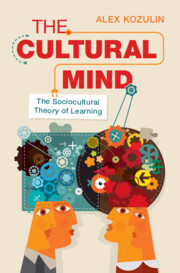4 - Learning Potential
Published online by Cambridge University Press: 09 November 2023
Summary
Each developmental period can be associated with the activity that plays a leading role in children’s lives during this period. The model of leading activities is culturally specific – leading activities are shaped by a given culture and subculture and reflect both the children’s abilities and the expectations of their parents and other mentors. Socioculturally constructed leading activities serve as a motor of child development. Within each of the developmental periods, activity-dependent cognitive and interpersonal skills lead to the formation of a new motive that corresponds to the new leading activity that becomes dominant during the next developmental period. The relationships between children and their sociocultural environment are reciprocal – the leading activities offered to children interact with children’s emerging abilities and motives, while these abilities and motives are shaped and developed by the leading activities. The following leading activities typical for industrial and post-industrial societies are examined: infancy – direct emotional contact with the caregiver; early childhood – joint object-centered activity; preschool age – sociodramatic play; elementary school age – formal learning; middle and high school age – peer interaction; adulthood – work activity.
Keywords
- Type
- Chapter
- Information
- The Cultural MindThe Sociocultural Theory of Learning, pp. 101 - 132Publisher: Cambridge University PressPrint publication year: 2023

